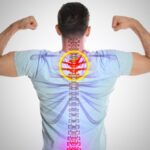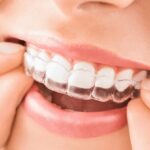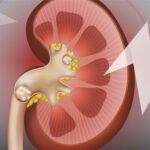Types of Doctors to Treat Erectile Dysfunction
There are several types of medical experts to treat Erectile Dysfunction (ED). Depending on the cause of the disorder, the doctor may prescribe oral medications or a urologist may perform injections. Some doctors also refer patients to psychologists, depending on the symptoms and severity of the condition. Each type of treatment has its benefits and drawbacks. Listed below are some of the different types of doctors to treat ED.
A physician may perform lab tests to rule out other causes. These tests include blood counts, urine tests, and measurements of cholesterol, creatinine, and liver enzymes. Several tests can indicate underlying endocrine system problems. Lab tests can measure testosterone levels and blood flow in the penis. Psychosocial exams may include interviewing the patient’s partner. Lifestyle changes may also be recommended, such as cutting back on alcohol and increasing physical activity.
Vacuum Constriction Therapy: Patients can choose to undergo injection therapy or a non-invasive procedure. These procedures can help you achieve an erection but have a high risk of side effects, including penile scarring. Injection therapy is not recommended for those with severe cardiovascular disease, and can cause dizziness and high blood pressure. Psychogenic ED is a common cause of erectile dysfunction. Psychogenic ED is caused by performance anxiety, often related to stressful situations. Surgical procedures, however, are rarely recommended unless it is not an option.
Prescription drugs may also cause erectile dysfunction. Many prescription medications affect a man’s hormones, nerves, and blood circulation. When these drugs cause erectile dysfunction, they can make it more difficult to achieve a solid erection. Examples of these medications include diuretics (medications that increase urine flow), antihypertensives, and antiarrhythmics, which treat irregular heartbeat.
The physical causes of erectile dysfunction include age and certain medical conditions. For example, aging causes erections to take longer to form, and they are not as firm as when a man is younger. People with erectile dysfunction often require more touch in the penis to achieve an erection. Psychological factors are often less prevalent than physical ones. Sexual performance anxiety affects nine to twenty-five percent of men.
Other causes of erectile dysfunction include alcohol use and nerve damage from diabetes. While many people assume that ED is a normal part of aging, it can also be a symptom of a more serious medical condition. Erectile dysfunction can lead to low self-esteem, reduced sexual satisfaction, and relationship problems. If you suspect that you may be suffering from erectile dysfunction, see a doctor. Treatment for erectile dysfunction can include oral medications, counselling, and erectile prosthetic implants.
While the underlying principles for treating ED are similar in most men, treatment for this condition can vary widely from one patient to another. While treatment for ED can improve a man’s overall physical health and optimize his quality of life (QoL), every case of ED is different. Each man brings his own set of symptoms, associated health issues, and partner’s concerns to the clinical encounter. Understanding these issues and how they relate to each patient will help the physician determine the best course of action.
Men with ED often experience intermittent failure to get an erection during sexual intercourse. The cause of these failures may be many different factors, including stress, relationship issues, and even being extremely tired. However, if a man is unable to attain an erection more than 50% of the time, he may have an underlying erectile dysfunction. In either case, treatment for ED aims to improve circulatory health, restore normal erection function, and improve his quality of life.
Treatment for ED may involve taking prescription medications, undergoing a medical procedure, or changing your lifestyle. Lifestyle changes such as weight loss and exercise may help. If these methods are ineffective, a doctor from an erectile dysfunction clinic located in Cleveland may recommend a more holistic approach. For example, some men may benefit from counseling. Psychotherapy may also be helpful. Various types of therapy have different benefits. The best method for you will depend on your specific case and the severity of your ED.
An alternative therapy for erectile dysfunction is injection therapy. This technique is a popular option in treating many of the causes of erectile dysfunction. This technique uses a small amount of medicine to relax the blood vessels in the penis, allowing more blood to flow in. This procedure is effective for many men, but it does have certain disadvantages. Some men may not tolerate injection therapy. It is important to seek medical care for your condition as early as possible.
The American Urological Association created the Male Sexual Dysfunction Panel in 2013 to develop a guideline for the treatment of erectile dysfunction. A committee of urologists was selected to serve as co-Chairs, as well as additional panel members. Following this panel’s recommendations, the guideline document was distributed to 35 peer reviewers. The panel reviewed the comments and revised the draft document as necessary. Once approved by the Practice Guidelines Committee, the guideline was then submitted to the AUA Board of Directors.
Although erectile dysfunction is a common problem, it is not always easily diagnosed. The effectiveness of effective treatments has led to higher diagnosis rates and treatment of ED. A five-question questionnaire, called the International Index of Erectile Function (IIEF), allows clinicians to diagnose and treat patients quickly. In addition, the five-question International Index of Erectile Function, or iIEF-5, is useful for rapid clinical assessment of erectile dysfunction.








